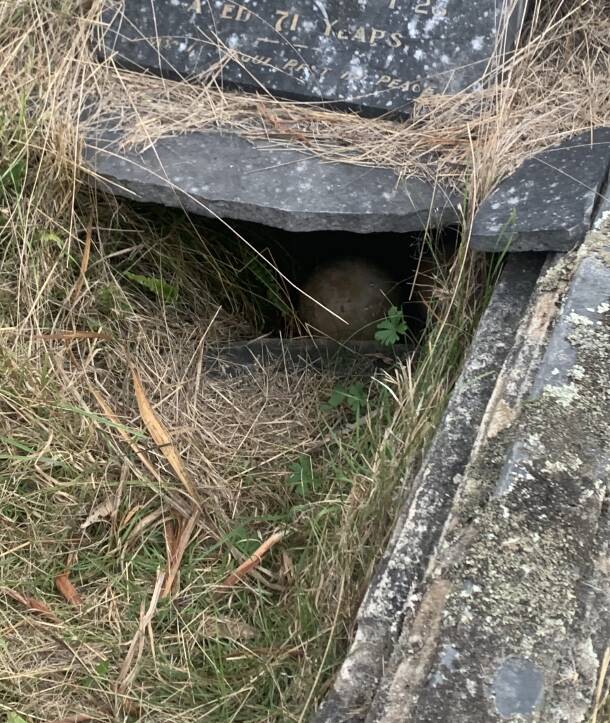
A howling southerly violently shakes the stunted gums that ring a bush cemetery near Braidwood.
Ahead is an old grave, part of its concrete cover has collapsed, and it appears as if animals, perhaps rabbits, have dug a burrow at the head of the grave. Oh dear.
Alarmingly, lying in the bottom of the shallow hole is a greyish circular object. It's about the size of a human skull.
It couldn't be, could it?
My heart is beating a million miles an hour. I've seen some unusual sites in far-flung cemeteries, but nothing like this. Never.
Do I immediately report it to the local council? Or do I first attempt to cover it up with dirt, leaves, anything. After all, this is someone's final resting place.
I do neither. Instead, I tentatively bend down for a closer look.
I'm glad I do, for I spot a second spherical artifact resting up against the first.
And they aren't skulls after all.
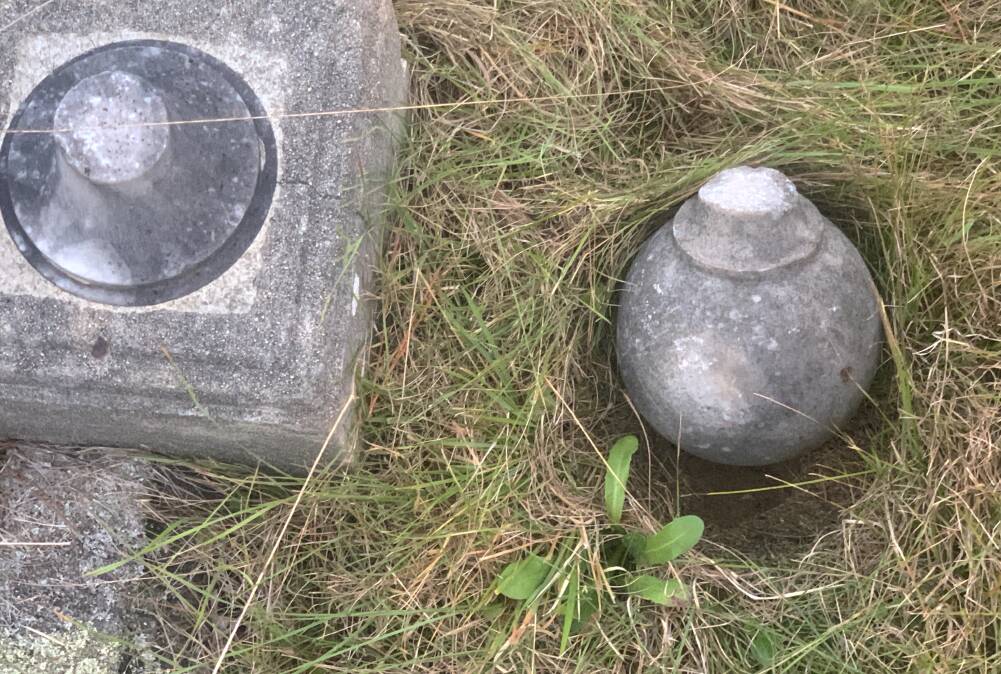
I realise they are two of four grave ornaments that once marked each corner of the near century-old crypt. Over time they have either toppled in or been purposefully placed in the burrow to ensure the rabbits don't dig any deeper.
Still regaining my composure, I text a photo of the grave to my friends to gauge their reaction. Each jumps to the same conclusion I did. Phew. My fright was genuine, not the result of my overactive imagination.
While it's the only time I thought I'd stumbled upon human bone in a cemetery, it's by no means the first account brought to my attention of animals wreaking havoc in bush cemeteries.
There's a private cemetery in the ACT, where, as a child in the 1980s, a Tuggeranong farmer tells me he occasionally found bones "dug up by over-zealous wombats". Talk about a scavenger hunt with a difference. Thankfully the graves have since been protected by an electric fence and regular maintenance.
Meanwhile, several years ago on a visit to Delegate Cemetery, Rod Taylor, of The Canberra Times' Ask Fuzzy column, photographed what he mischievously reported as "evidence of concerning graveyard activity".
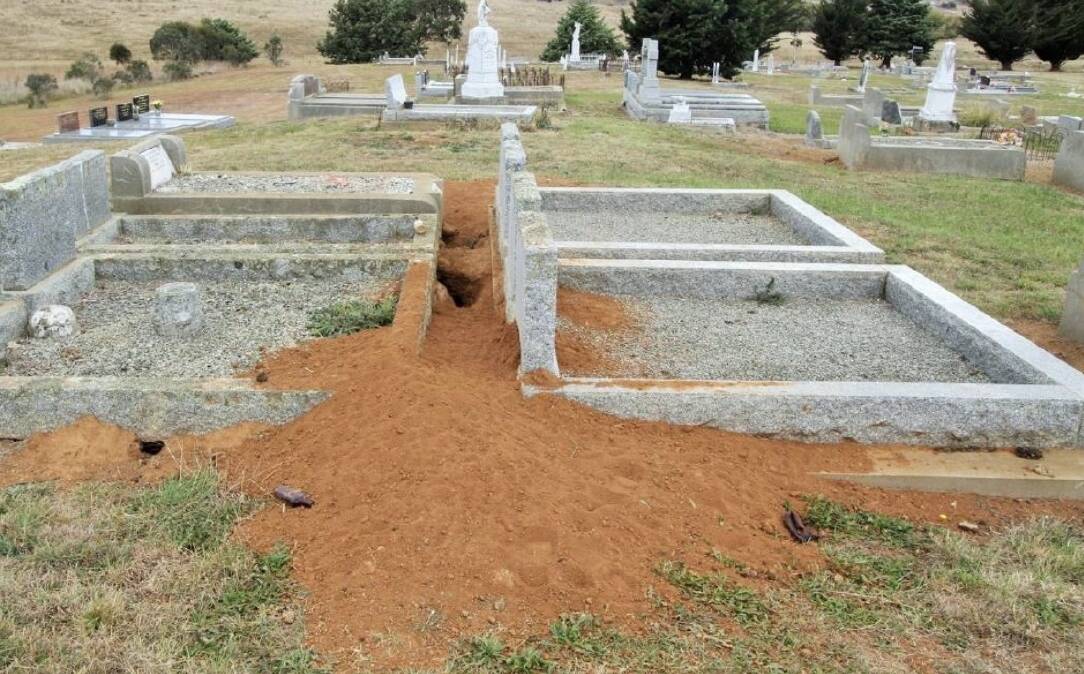
"Unhappy with their accommodation, the residents appear to have left in a hurry," quipped Rod in his missive that accompanied a photograph of the graveyard pockmarked with wombat burrows.
Jacob Castagna of Australian Cemetery Supplies reveals collapsing concrete covers, whether the result of burrowing animals or ground subsidence, are a common problem. "I do a lot of restoration work and replacing cover slabs of broken concrete with new polished granite slabs," he reports.
Wooden steles
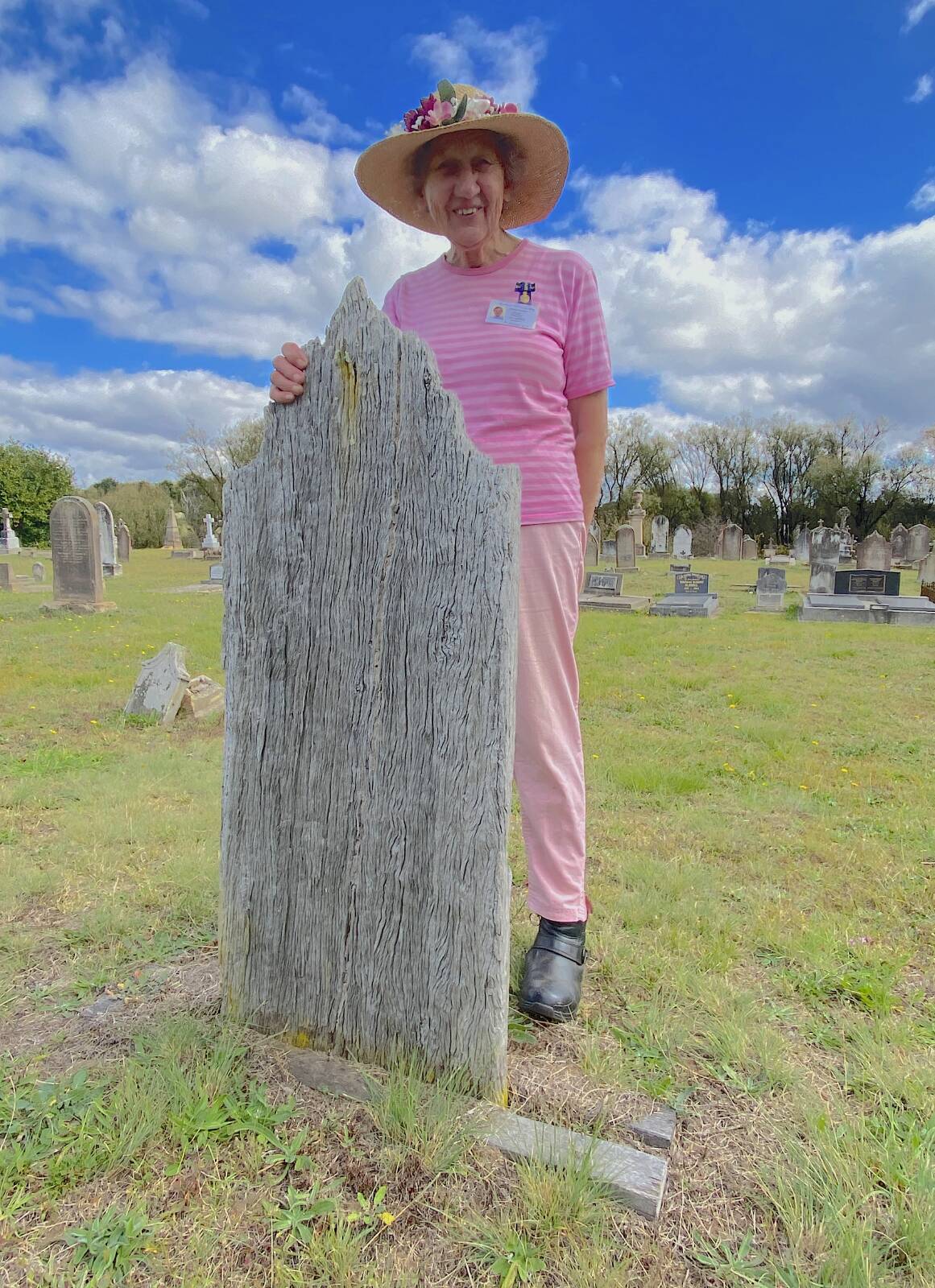
Still on grave matters, it turns out that the lone wooden grave marker at Braidwood Historic Cemetery (Grave Matters, April 29, 2023) isn't the only wooden "stele" in the region.
Meredith Elliott reports of wooden markers in Boorowa, Scott Yates submitted photos of several still standing in the cemetery at Yass, while I. Bruggeman of Goulburn reports several wooden markers in Araluen's Church of England Cemetery. "Thirteen years ago when I took the photo, there was no evidence of names left on the timber markers made from local hardwood," she reports.
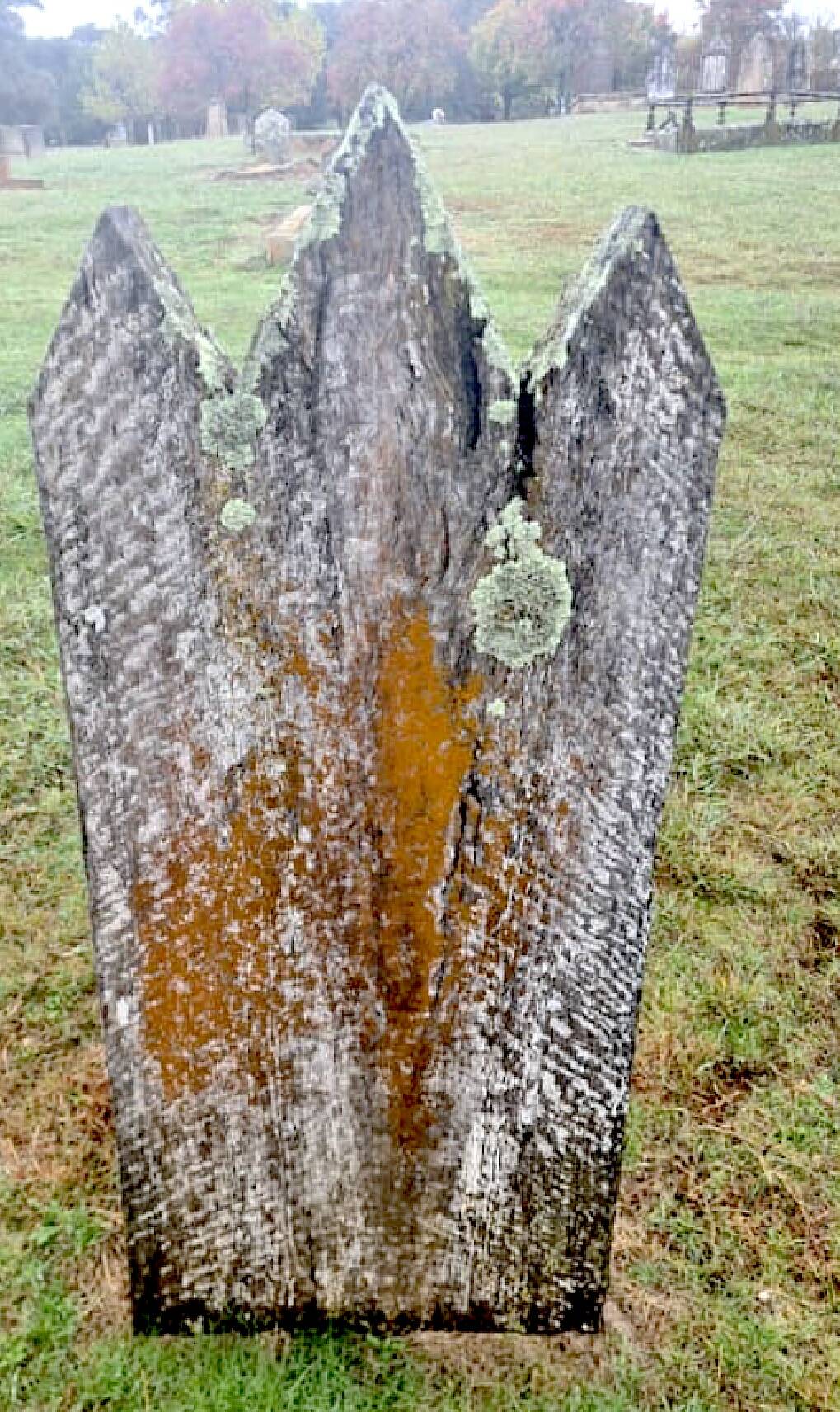
Further, Geoff Kemp reports "timber headstones were reasonably common and some are made even today". "I've seen some over a century old on the north island of New Zealand and a couple well over a century old in Strahan in Tasmania made of Huon pine."
The case of the missing grave markers
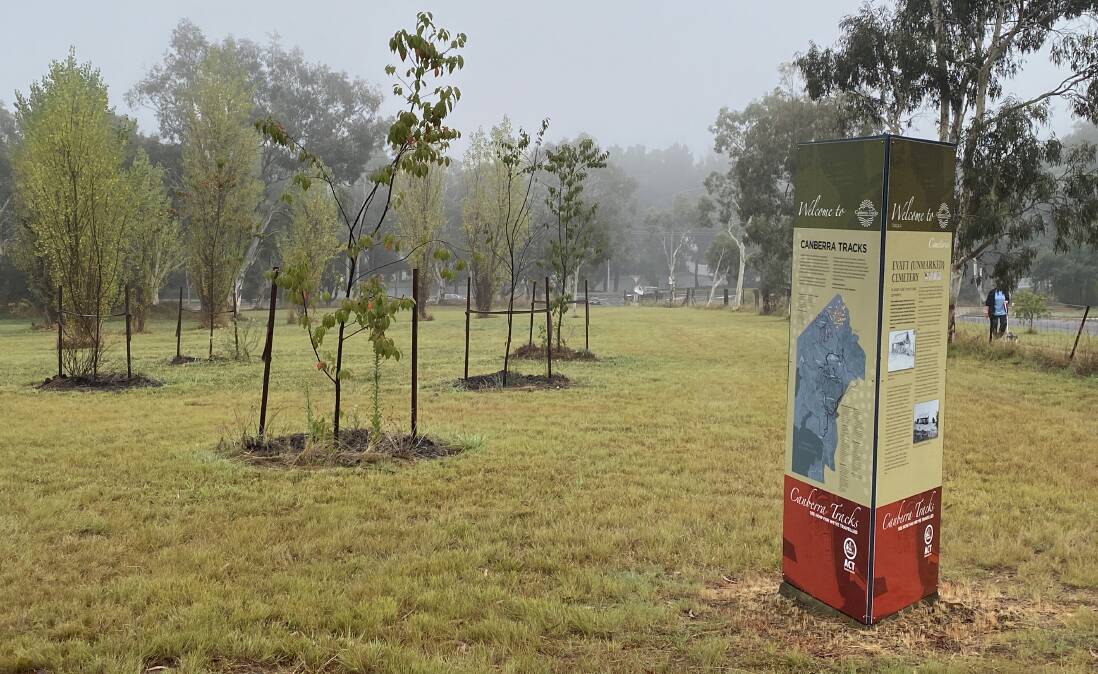
Closer to home, in response to the revelation last month that all the grave markers in the St Paul's Burial Ground in Evatt (Digging up the past in Evatt's 'forgotten' Graveyard, April 1, 2023) have disappeared over time, most correspondents agreed with the sentiments of Sue Standen of Kaleen who lamented, "It's very sad how we don't look after our graves".
In fact, several readers echoed the concerns of Rohan Goyne who recently led a heritage festival tour in the historic cemetery that a copse of ornamental plums (Prunus campanulate) had been planted without due consideration to where burial sites were. "Surely the government wouldn't have planted them, it must have been urban foragers thinking it was vacant land," argued Rohan.
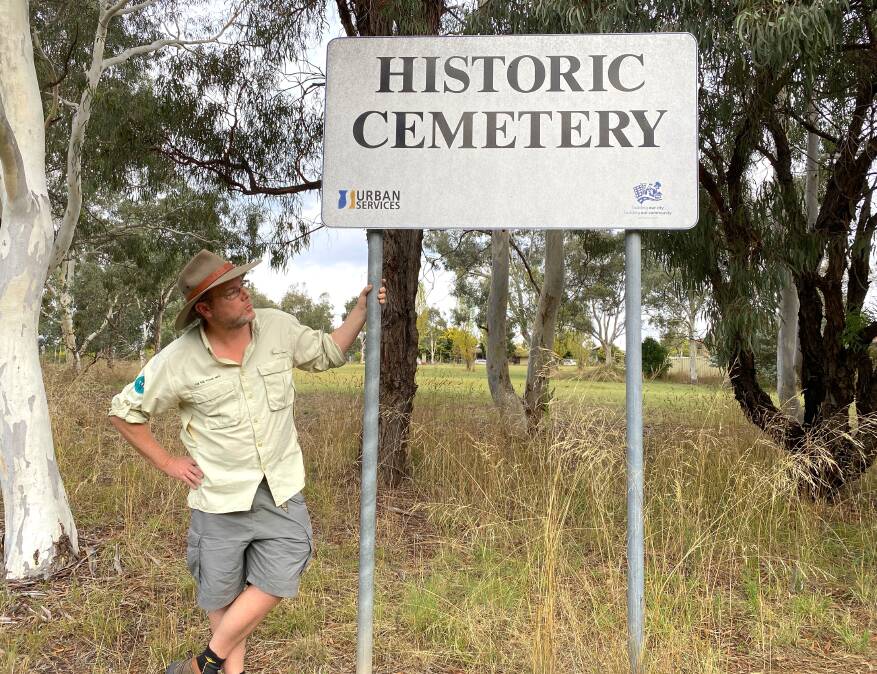
The ACT government, which manages the site, says they did plant the trees in 2016, with some replacement trees planted in 2021 for those which had died.
"On recent inspection, it was noticed that most of these trees are in poor condition and some have not survived," reports a spokesperson for the government.
"We will look to remove the trees and work together with ACT Heritage and any other interested parties to come up with a suitable planting palette and pattern which recognises, reflects and enhances the heritage significance of the area."
I presume that means they will ensure they aren't planted on top of unmarked graves.
Not that some readers would mind for not everyone believes we a should maintain the final resting places of our dead. At least not in the long term.
"Cemeteries are tranquil places, but a complete waste of land use," argues one anonymous correspondent. "Two generations on and relatives are generally forgotten".
Regular contributor Don Fletcher agrees. "The intent for cremation and for burial is that as far as possible, mortal remains return to nature. Ideally, at some point remains can be deemed to be 'gone', for example; like the ashes of someone scattered on the ocean, or cast from a windy hill."
Don argues "the same for burial, at some point in time", adding "how much of the earth's land surface would remain for us to use if every person that ever lived took 1.8 x 0.8 metres?"
Deep into the dragon's den
This column has long followed the plight of the Monaro Grassland Earless Dragon - one of our region's most endangered reptiles. Regular readers may recall in 2012 (Hunting Dragons, November 2), I joined researcher Tim McGrath for a day crawling on hands and knees and turning over rocks searching for the rare critter on windswept travelling stock reserves south-east of Cooma.
Fast forward 11 years and according to NSW Department of Planning and Environment senior threatened species officer Rob Armstrong, with continuing changes to grasslands through the spread of weeds, intensified wet and dry cycles, and various pasture modification, there has been "a further worrying decline in species habitat".
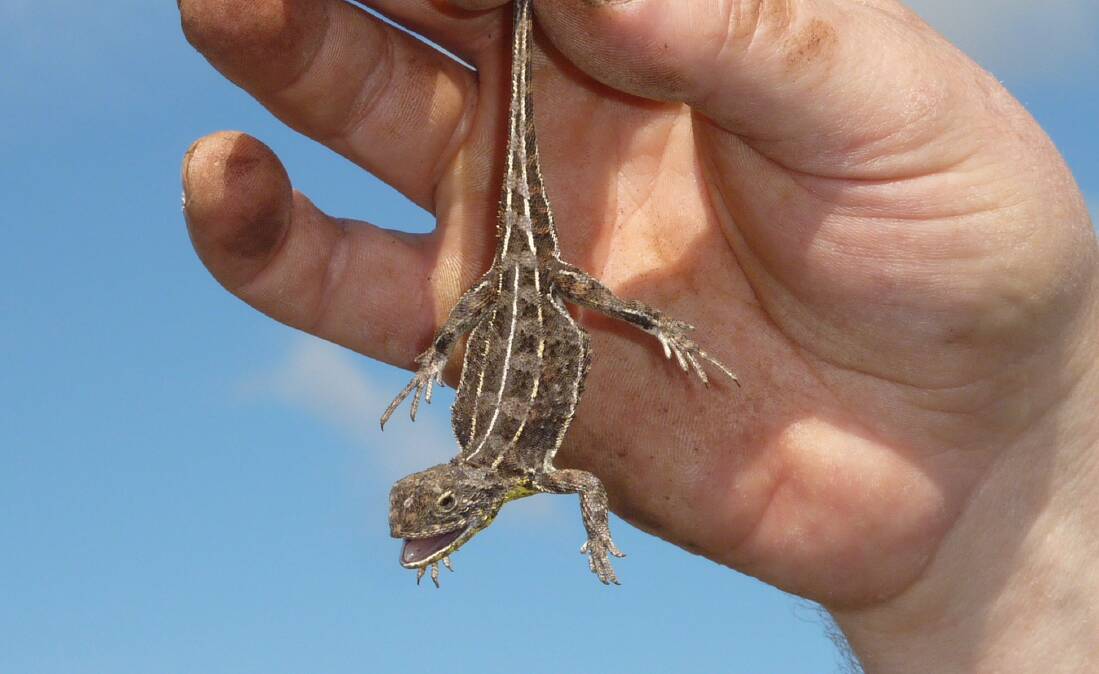
Apart from living around rocks which they use for shelter, these reptiles, which grow to about 12-15 centimetres in length, also like to hang out in holes or burrows created by wolf spiders. The burrows are the perfect size and offer ideal protection from predators.
To give the little dragons a helping hand, Armstrong and his colleagues in khaki have engaged members of the Cooma Men's Shed to create artificial spider burrows.
Over the last two weeks, 12 members of the shed have created more than 400 15-centimetre-long narrow tubes that will soon be place in suitable locations around the Monaro.
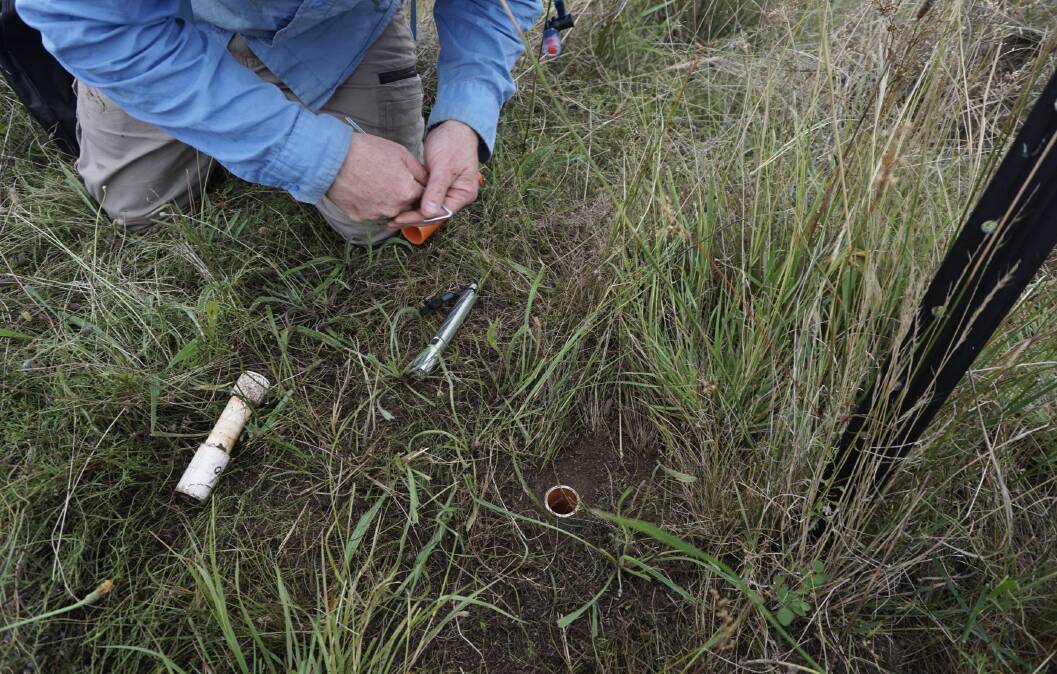
"The artificial burrows are crafted from PVC piping and bonded sand that enable the reptile to crawl in and out," reveals shed president Darrell Henderson. "Before we were asked to help, none of our member had even heard of the earless dragon, so it's great to not only learn about it, but also to contribute to the effort to save a local species from extinction."
I tip my hat to all involved. Let's just hope the dragons take up their homes.
Did You Know? Despite their name, these cute little critters aren't without ears, they're just not as noticeable as on most animals.
WHERE IN CANBERRA?
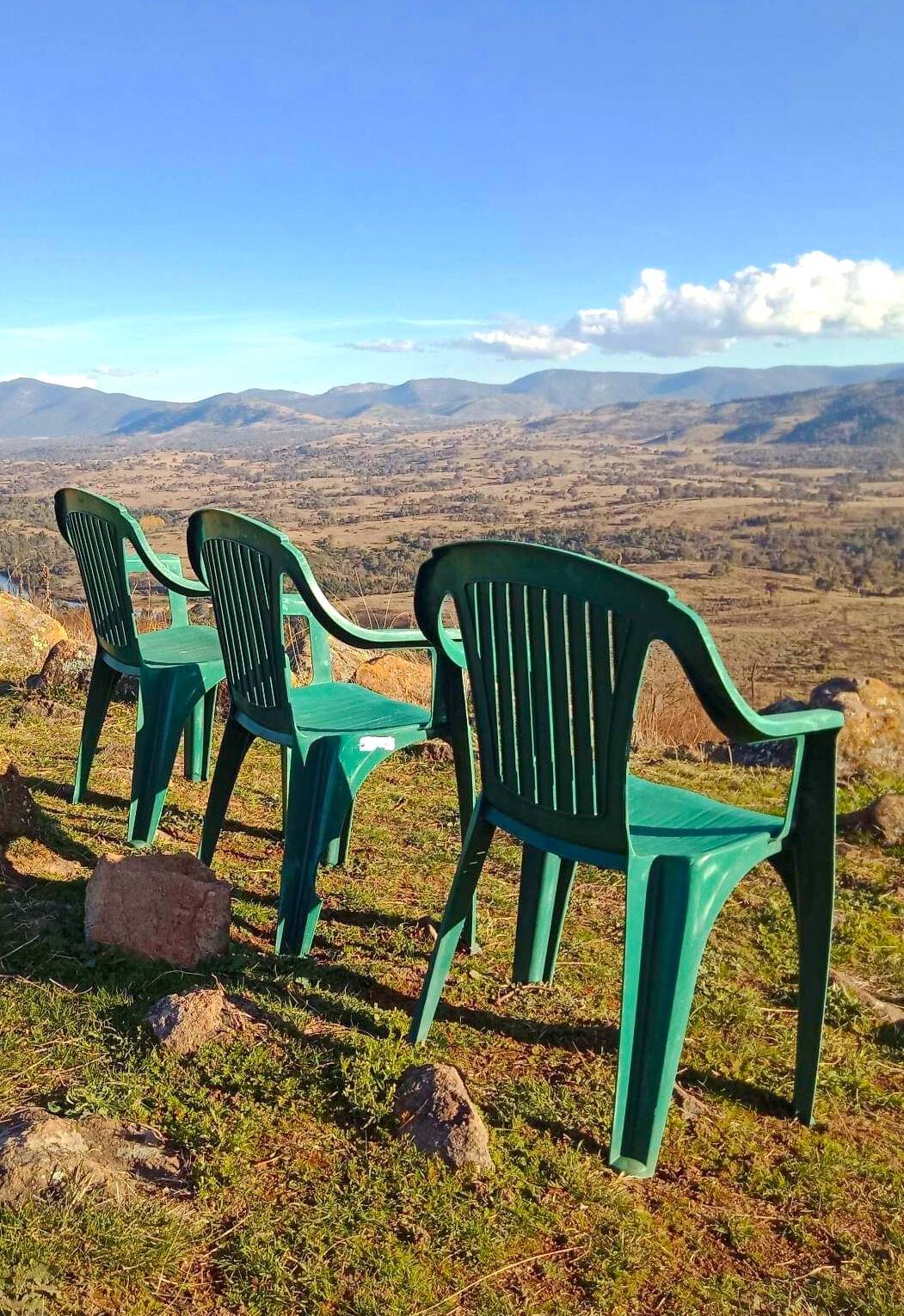
Rating: Medium
Clue: Yes, that's the 'bidgee you can see in the mid-ground
How to enter: Email your guess along with your name and address to tym@iinet.net.au. The first correct email sent after 10am, Saturday May 20 wins a double pass to Dendy, the Home of Quality Cinema.
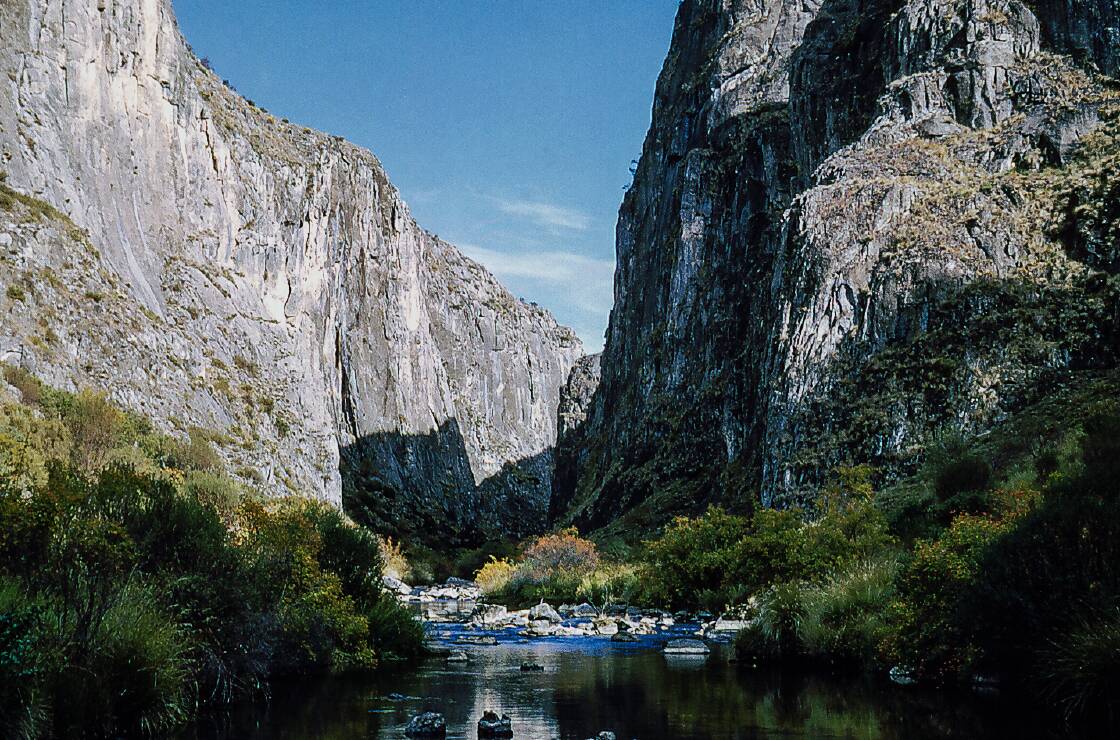
Last week: Congratulations to June McKenzie of Fisher who was first to identify last week's photo as Clarke Gorge near the entrance on Cave Creek, in northern Kosciuszko National Park. June beat a torrent of other entrants to the prize, including Jane Hedges, Peter Stevenson of Macarthur, and Leigh Palmer of Isaacs.
SPOTTED

While on a recent walk along the Bywong Greenway track, Jan Pryor was stopped in her tracks by the striking, almost gothic-like scarring on this tree.
"It doesn't appear to be the result of burning and the scaring goes right to the top of the tree", reports Jan.

The Bywong tree looks to be afflicted in a similar way as a tree on Gossan Hill in Bruce that appeared in this column in 2018 and that at the time experts explained were "cankers which are caused by a pathogen that infects the wood, usually a fungus."
I suspect this is the result of a similar infection. Someone must know.
CONTACT TIM: Email: tym@iinet.net.au or Twitter: @TimYowie or write c/- The Canberra Times, GPO Box 606, Civic, ACT, 2601
We've made it a whole lot easier for you to have your say. Our new comment platform requires only one log-in to access articles and to join the discussion on The Canberra Times website. Find out how to register so you can enjoy civil, friendly and engaging discussions. See our moderation policy here.







